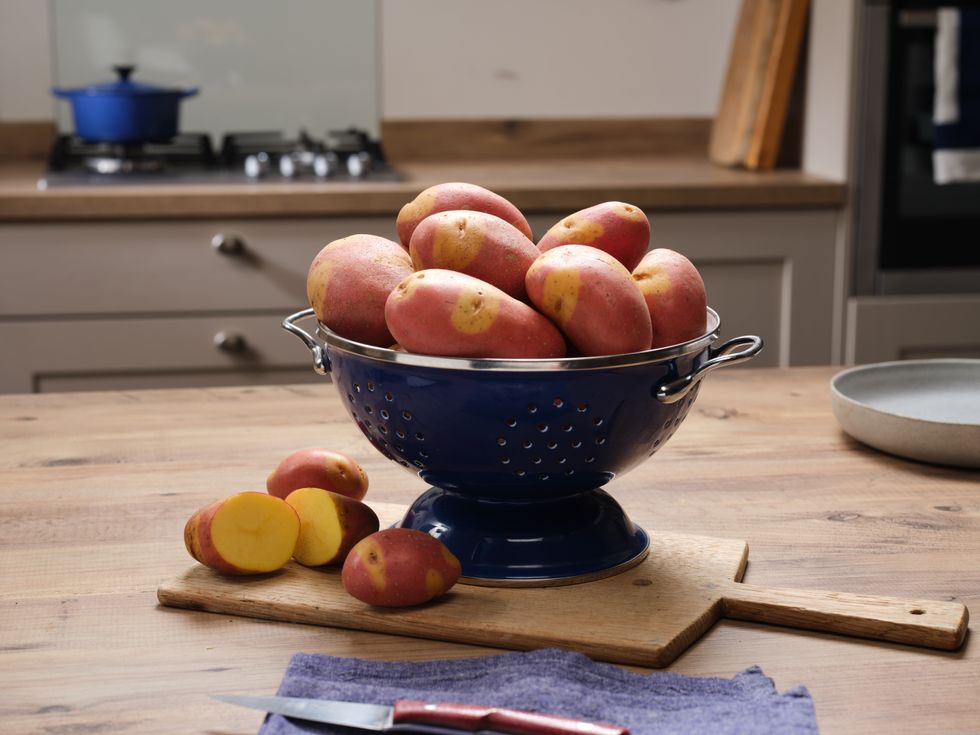Sam Russell
Nov 01, 2024

High demand for a hybrid potato named after the cartoon fish in Finding Nemo due to its unusual markings has led to supplier Branston planting more of them (Tesco/PA)
High demand for a hybrid potato named after the cartoon fish in Finding Nemo due to its unusual markings has led to a grower planting more of them.
Tesco said the Nemo variety of potato can cut cooking time by 25%, saving energy in the home, and that they proved popular when they went on sale in previous limited trials at the store.
Now, potato supplier Branston has planted enough of the Nemo variety to last for seven months based on previous sales data, Tesco said.
The supermarket hopes this will make it easier for shoppers to find Nemo potatoes in stores.
Nemo potatoes have distinctive pink skin with creamy yellow patches around their large eye-like markings, giving them a bi-coloured appearance and leading to their Nemo name – after the cartoon clownfish.
The environmental credentials of Nemo are strong too – it requires relatively small amounts of fertilisers and much of this nutrition can be organically-derived
Mark Willcox, Branston potato supplier
Tesco potato buyer Lucy Moss said: “The Nemo is now well on its way to becoming a modern British classic potato and is already being talked about by those who have tried it as the ultimate roasting spud.
“The potato is considered a game-changer not only because it can slash cooking time compared with the average roasting spud, but also because of its wonderful creamy taste, rich fluffy texture, crisp outer skin and distinct golden colour.”
Branston has plans to further increase availability of Nemo over the next few years as seed volumes expand, with the potatoes grown in Lincolnshire and Suffolk.
It is optimistic that with greater availability the Nemo could join the King Edward and Maris Piper as a classic roasting potato.
Mark Willcox, director of agronomy at Branston, said: “Establishing a new potato takes many years as we need to understand how and where it grows best while testing it in the market.
“At the same time, potato seed multiplication takes four to five years to build up to full commercial volumes, so this gives us time to fully understand its strengths and weaknesses.
“We are very pleased with how well Nemo has performed in Tesco’s Finest range over the over recent Christmas periods.
“Based on this success, this year we planted enough to maintain it in store for up to seven months, based on previous sale rates.
“We carefully select the best growers on the best land to grow this premium potato.
“The environmental credentials of Nemo are strong too – it requires relatively small amounts of fertilisers and much of this nutrition can be organically-derived.
“It has strong disease resistance and uses water efficiently, especially where applied by drip irrigation.
“Many of the Nemo fields have benefited local biodiversity through the planting of flower-rich grass field margins.”
Nemo is a phureja hybrid variety, which combines the vigorous fast-growing nature of original Peruvian potatoes with the hardiness of modern European varieties from the Solanum tuberosum Solanaceae family.
It has the golden yellow flesh typical of an Andean phureja, with a more uniform cell structure which enables it to cook much more quickly.
The Tesco Finest Nemo Potatoes cost £2.30 for a 2kg bag and will be available in more than 400 stores.
Top 100
The Conversation (0)













